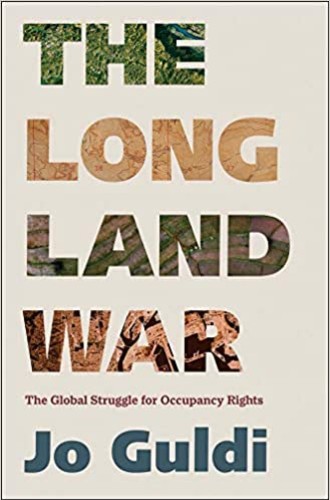Who gets to live on the land?
Historian Jo Guldi argues that land occupancy struggles aren’t just about fairness; they’re about humanity’s survival.
One might expect a book called The Long Land War to focus on the history of violent military conflicts between powerful nation-states to divide long-disputed territory. But instead of analyzing Israeli settlements in the West Bank or the political status of Taiwan, Jo Guldi’s book focuses on something much less sensational, although arguably more consequential: the recent history of land occupancy rights across the globe.
Within the United States’ capitalist system of well-defined and readily enforced property rights, land occupancy rights are almost indistinguishable from land ownership rights. However, this equivalency is a comparatively new development in human history and is not universal across the globe. Guldi, who teaches history at Southern Methodist University, frames occupancy rights as the right of people not to be displaced. Armed with this tangible definition, she explores the history of land occupancy rights among former European colonies in the 19th and 20th centuries.
Guldi argues that although individual campaigns for land rights have differed in their specifics—land marches in India couldn’t have looked more different than rent strikes in Ireland, for example—they can and should be viewed as part of a larger global movement among the poor people of the world. She writes:





